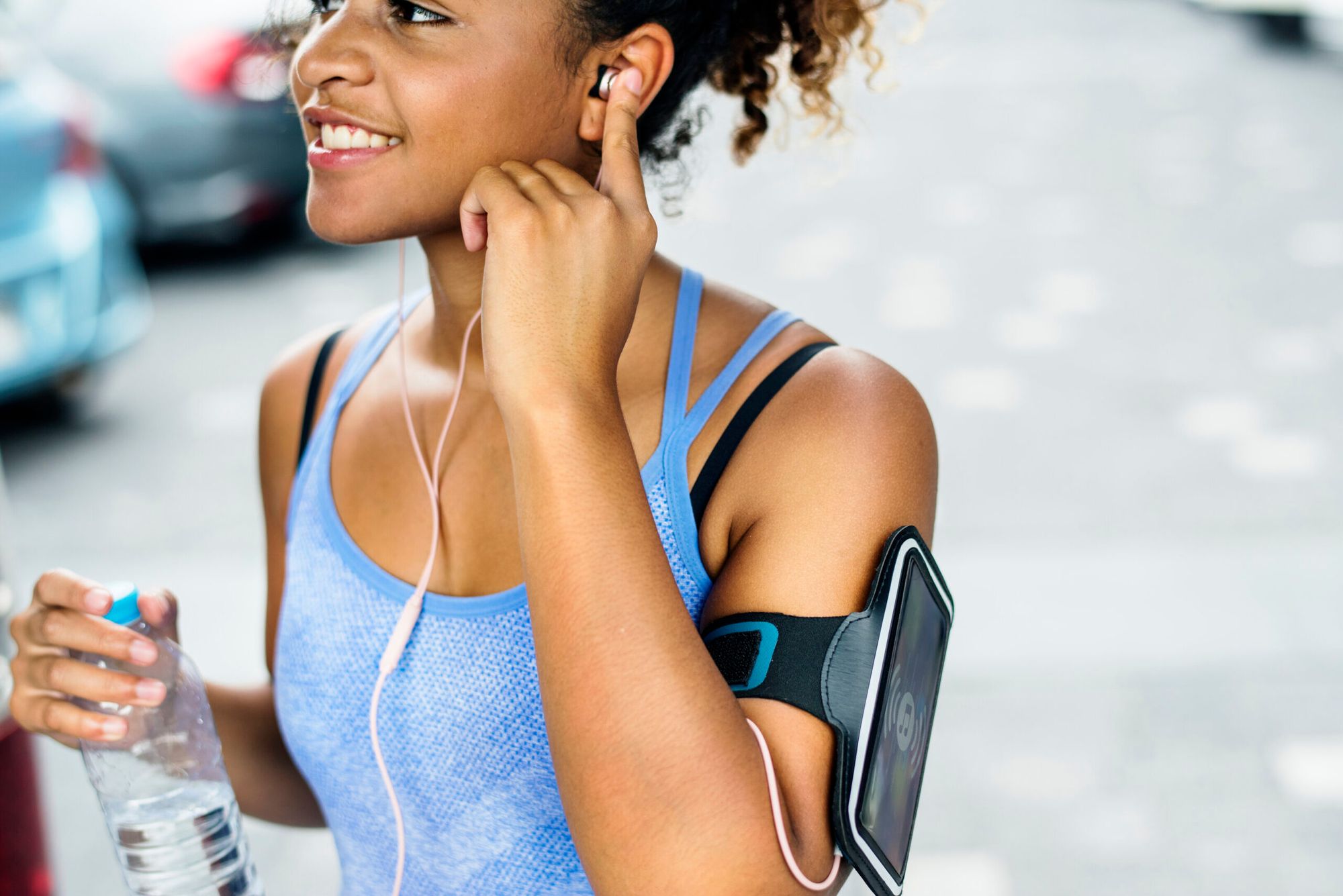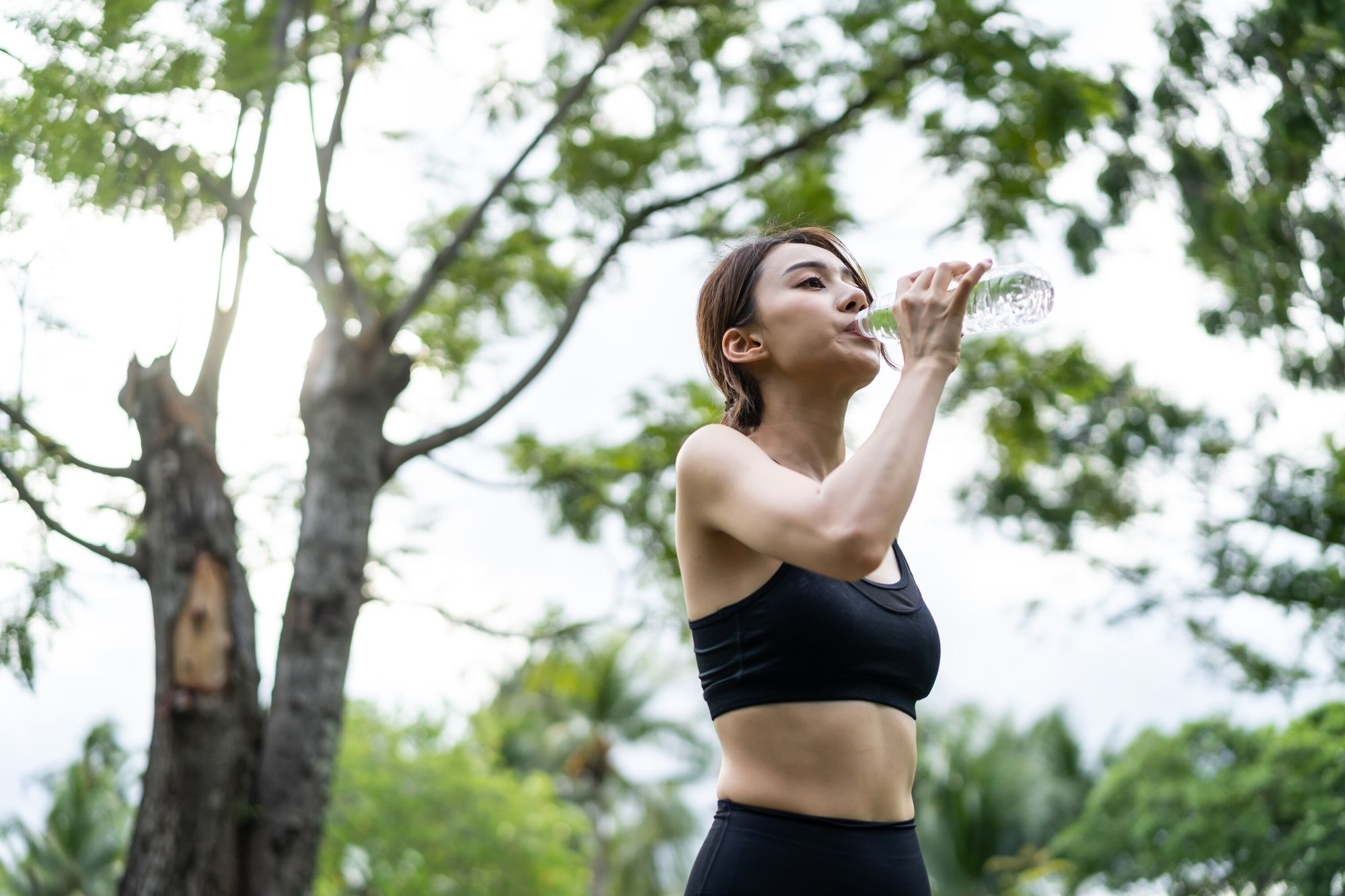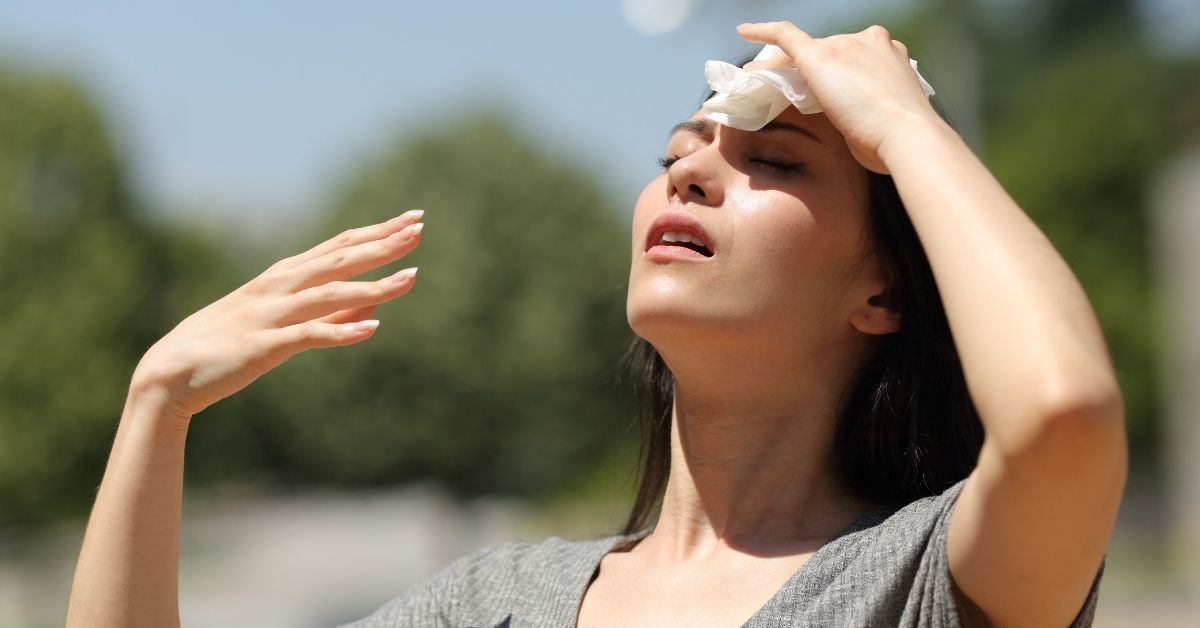
It’s very important to replace bodily fluids lost through sweat when you exercise. During intense physical activity and exercise, water loss is a concern. You lose more water during exercise than you do throughout regular daily activities, and you also increase your risk of dehydration.
When you sweat and lose bodily fluids, you will become dehydrated if you don’t replace the lost fluids, and dehydration comes with a plethora of negative side effects.
As we know, the human body is made up of approximately 70% water. During physical exertion (especially in the heat, but also in regular environmental conditions) you’ll lose a lot of water, because you’re sweating out bodily fluids.
After a very intense workout where you sweat a lot, one of the reasons why you feel ‘slimmer’ is because you’ve lost a bunch of water weight. However, for the sake of your health, it’s crucial to mitigate water loss during exercise and stay hydrated by drinking a lot of water.
The Importance of Body Fluid Regulation
Body fluid regulation is critical for optimizing athletic performance, especially when it comes to improving your endurance and preventing fatigue or dizziness.
If you exercise intensely (especially in the heat), you may need to add electrolytes to your water to replace electrolytes lost with sweat. This is why many athletes add electrolyte powder to their water, or drink sports drinks.
Examples of intense exercise where people tend to sweat more than they do during other types of exercise (and therefore lose more fluids) include:
- Hot yoga such as Bikram yoga
- High-intensity spin classes
- Stair climbing or uphill climbing and hiking
- Kickboxing
Humans cannot adapt to a water deficit, so fluid loss during exercise must be replaced in order for physiological function to continue optimally.
Taking steps to ensure you minimize water loss and loss of electrolytes during exercise will increase your athletic performance, improve your workout recovery time, and help you get a better workout while feeling your best.

What Are the Dangers of Water Loss and Dehydration During Exercise?
Below are just some of the health complications that can arise when a person fails to drink enough water during exercise, and fails to rehydrate after exercise:
- Dehydration can cause exercise-associated muscle cramps.
- Overheating of the body (dehydration and water loss during exercise can lead to overheating and possible heat exhaustion.)
- Low blood pressure (dehydration can lead to low blood pressure due to a change in the blood volume, which limits oxygen and nutrients from reaching your brain and organs.)
- Nausea and/or vomiting due to extreme dehydration. (Rest assured, you’ll feel very sick if you go for a workout without your water bottle, and you might even vomit.)
- Dehydration headaches
- Dizziness (it’s not unheard of for people to become very dizzy – or even faint – due to exercising without proper hydration.)
- Fatigue and weakness due to dehydration can impact your athletic performance and make you feel too weak to continue exercising.
Many factors impact how much water, electrolytes and bodily fluids will be lost during exercise and how much water you need to drink during exercise.
These factors include how hot the temperature is while exercising, exercise intensity, exercise duration, gender, age, and of course, your genetics.

Are You Genetically More Likely to Lose More Water During Exercise?
When you take a CircleDNA test, you learn a lot about yourself, including your genetic strengths and weaknesses when it comes to fitness, such as being genetically more likely to have high endurance.
Your DNA test can also tell you whether or not you’re genetically more likely to lose an average (normal) amount of water during exercise. It’s possible that your DNA test could reveal that you have a genetic likelihood of losing an above average amount of water during exercise, however, and this is important information to be aware of.
CircleDNA tests genes that are associated with water loss. These genes encode the aquaporins which transport water through membranes, and help regulate water loss during exercise. This includes the CHST9 gene and the AQP1 gene.
Gene mutations affecting AQPs can have an impact on your athletic ability because they impact water loss during exercise.
Those with a genetic likelihood to lose higher amounts of water during exercise need to be especially intentional about staying hydrated not only during their workout, but before and after their workout as well.
Here’s What You Can Do to Mitigate Fluid Loss During Exercise
To help prevent losing too much water during exercise, and to help prevent dehydration, you need to ensure you’re well hydrated before, during, and after exercise.
Don’t go to a morning workout class with a bottle of water and think you’ll be fine as long as you have that bottle of water with you. Instead, ensure that you drink a couple glasses of water before your morning workout, as well as during it and afterwards.
For an extra boost of hydration, choose electrolyte-rich sports drinks such as coconut water or an electrolyte beverage. It’s as easy as putting a packet of Halo Electrolyte Powder in your water bottle.
Don’t choose the gatorades full of sugar. Although these are marketed as a sports drink, you don’t need all that sugar, so be sure to read the nutritional label before you buy a sports drink.
To ensure that you are adequately hydrated prior to and during exercise, you should drink no less than 500ml of electrolyte-rich sports drinks 40 – 60 minutes prior to exercise.
During your workout, drink no less than 100ml of water or electrolyte-infused water for every 15 minutes of exercise. These sports drinks that contain sodium and electrolytes are especially good for hydration.
Once you finish your workout, drink no less than 100ml of water or electrolyte-infused water every 15 minutes for the first few hours of your post-workout recovery period.
References:
1. Water Requirements During Exercise in the Heat – National Academies Press https://www.ncbi.nlm.nih.gov/books/NBK236237/
2. Rivera MA et al., Int J Sports Med, 2011 Mar; 32(3):229-33







Comments are closed.